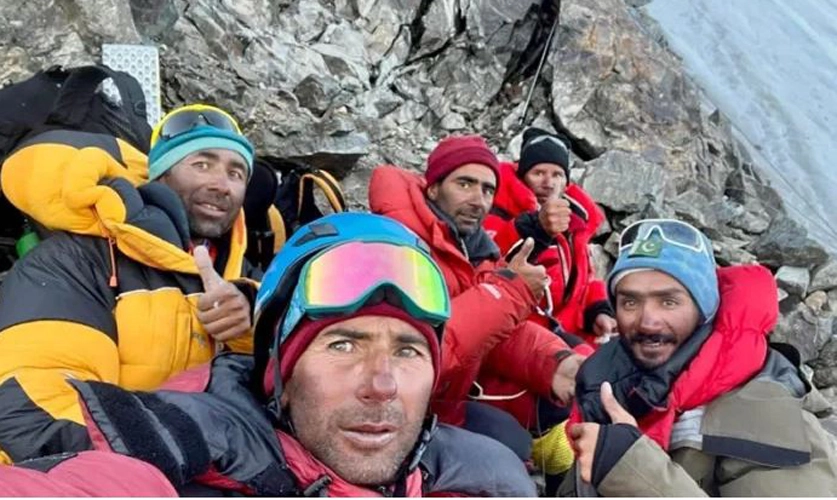Pakistani climbers retrieve porter's body a year after K2 summit

KHAPLU, Pakistan (AFP) - Climbers recovered the body of a Pakistani porter from K2 mountain, a climbing federation confirmed Tuesday, a year after he died while other climbers made a record-breaking ascent.
Muhammad Hassan Shigri slipped and fell from the most dangerous pass during a night climb and was left dangling upside down on a rope before fellow climbers were able to pull him up and attempt to revive him.
He died on the pass known as the "Bottleneck" as dozens of climbers in different teams continued towards the summit. The climbers included Norwegian record-breaker Kristin Harila who, along with her Nepali guide Tenjin ‘Lama’ Sherpa, that night became the fastest person to summit the world's 14 highest mountains.
"The rescue team made history and turned the impossible into possible," Karrar Haidri, Secretary of the Alpine Club of Pakistan told AFP of the recovery of Shigri's body last Wednesday. He said it was an ‘unprecedented rescue, the first of its kind on K2’. The recovery was completed by a team of five climbers led by Naila Kiani, a Pakistani high-altitude mountaineer who was contacted by Shigri's family and backed by the Pakistan army. Shigri's body was returned to his family for burial.
"We want to thank Naila Kiani and the porters who did this great job. To bring the dead body back was a big wish of the family," his cousin Aslam Naz Shigri told AFP over the phone. Climbers were criticised at the time for stepping over Shigri's body but Harila said she and her team "did everything we could for him".
An investigation by the Gilgit and Baltistan provincial government's tourism department found Shigri was not prepared with sufficient clothing and was an inexperienced high-altitude porter, and that despite the dangerous conditions, some climbers had attempted to save him – but it was too late.
Porters, also called sherpas in the Himalayas, are highly skilled professionals who specialise in the logistics of mountain climbing. Rescue missions are high-risk operations even on the most common routes on K2 and bodies can be left behind for months, or even years, until the weather allows for them to be recovered on foot. K2, standing at 8,611 metres (28,251 feet) on the Pakistan-China border, is 238 metres shorter than Everest but is considered more technically challenging.
Pakistan is home to five of the world's 14 mountains above 8,000 metres. Four foreign climbers have fallen to their deaths in separate incidents on Pakistan mountains this summer climbing season. French mountaineer Benjamin Vedrines made the fastest ascent of K2 in 10 hours, 59 minutes and 59 seconds in July, slashing by more than half the previous record for reaching the summit without bottled oxygen.







